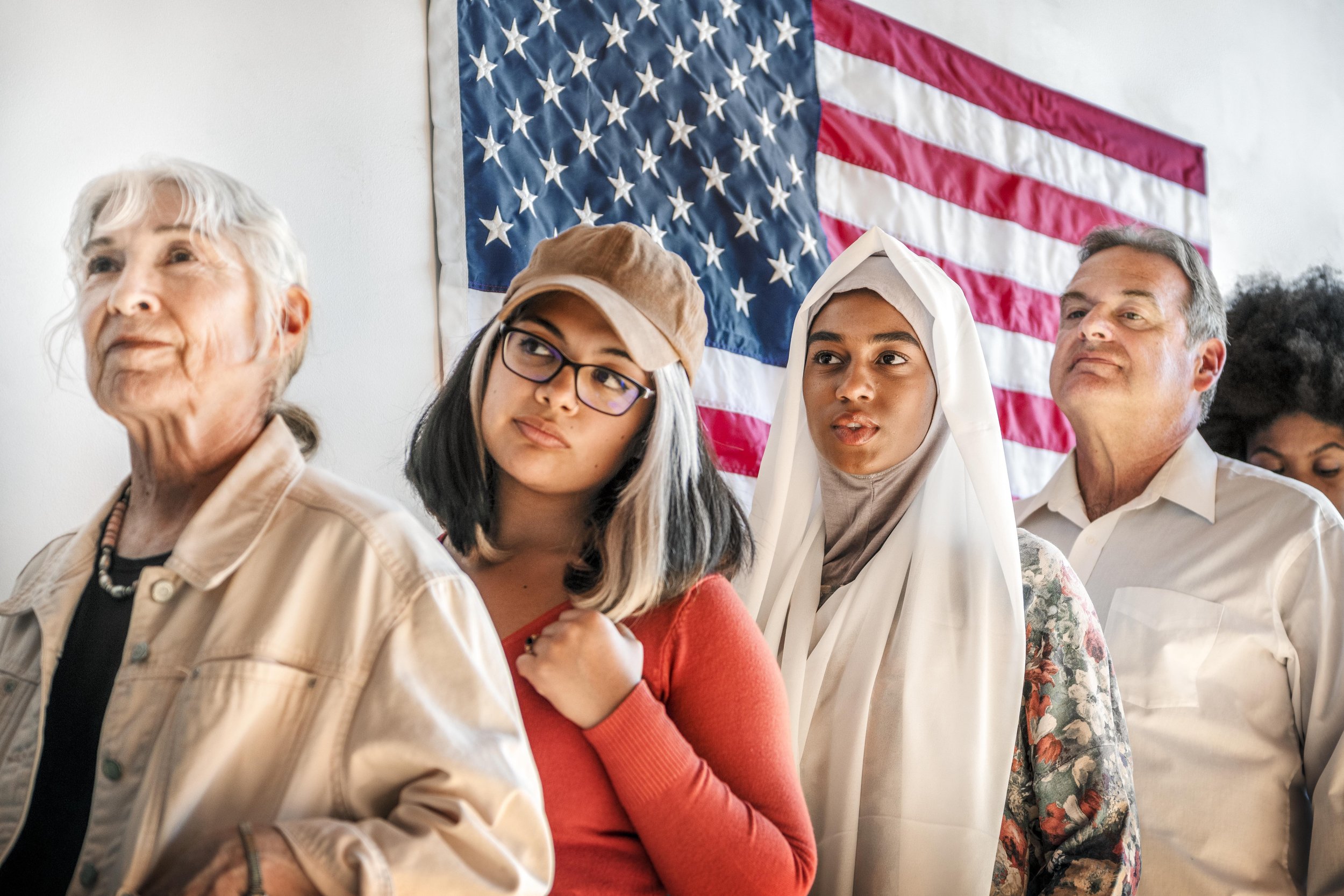
Pathways to
Citizenship
There is overwhelming support for creating pathways to citizenship for those who wish to come to America and fulfill their American Dream, and Project FREEDOM supports our neighbors’ desire to thrive, contribute, and live in safety.
A 2021 poll conducted by FWD.us found that
71% of the U.S. public supports the Dream Act, a bill originally proposed in 2001 that would grant those who came to the U.S. as children a pathway to citizenship.
There are numerous stories of undocumented people advocating for pathways to citizenship. According to Pew Research Center, undocumented people live in 6.3 million households that include more than 22 million people, and of those 22 million people, 11 million are U.S. born or lawful immigrants.
In granting clear pathways to citizenship, we envision a future where families stay together and everyone’s right to do so and live in safety is granted. We work to ensure that Dreamers and other undocumented members of our communities that are already contributing to America are granted protections — including expanding Temporary Protected Status and humanitarian parole and enacting legislation that establishes pathways to citizenship.
The Policy:
There is an opportunity to help provide approximately 8 million immigrants with permanent legal status With the "Renewing Immigration Provisions of the Immigration Act of 1929”. The Registry provides that the DHS Secretary has the discretion to grant lawful admission for permanent residence to those who have entered the U.S. prior to January 1, 1972 (commonly known as the “registry date”; has been here continuously since then; is of good moral character; and is not ineligible for citizenship or deportable on national security or certain other grounds. The Registry needs to be updated, as the last update occurred in 1986. The Migration Policy Institute estimates that 7-8 million DREAMers, TPS-holders, and other long-time community members have lived here for seven years or more, becoming eligible for universal relief if this becomes law.
Conclusion
Project Freedom also supports The Fairness to Freedom Act of 2023, which establishes the right to legal representation at the expense of the government for anyone facing removal from the U.S. and are unable to afford it. There is currently no right to government-funded legal representation for people in immigration proceedings who face detention and deportation, this would help provide that support at a devastating time.
We all deserve to live in freedom, and every person who comes to this country deserves to have a path to citizenship. It is important to recognize that no one is risking personal safety and livelihood unless they are working to realize the dreams they have for themselves and their families. We will work to continue to reduce pressure on the border by establishing more safe, orderly, and legal pathways for future immigration.
